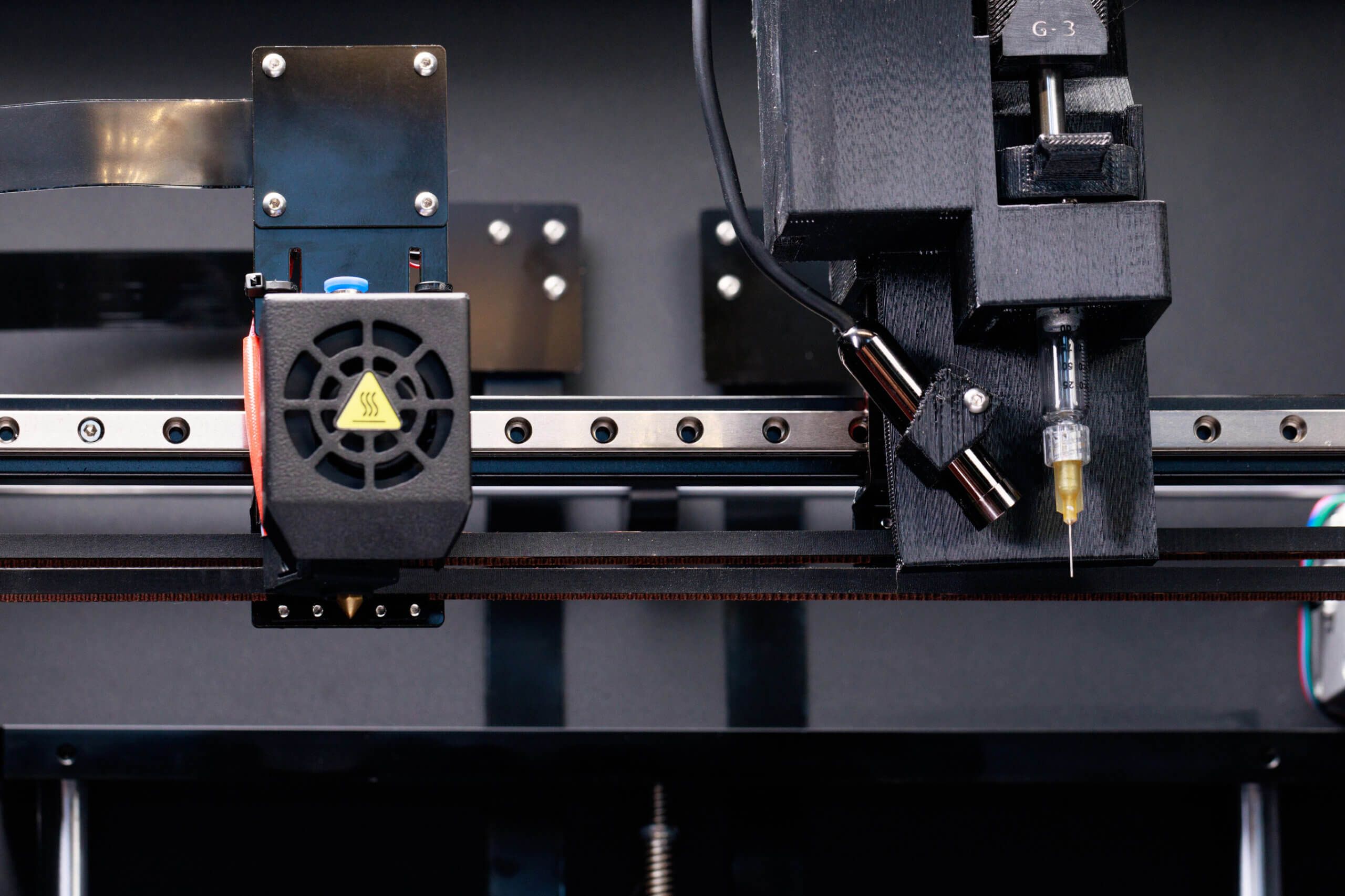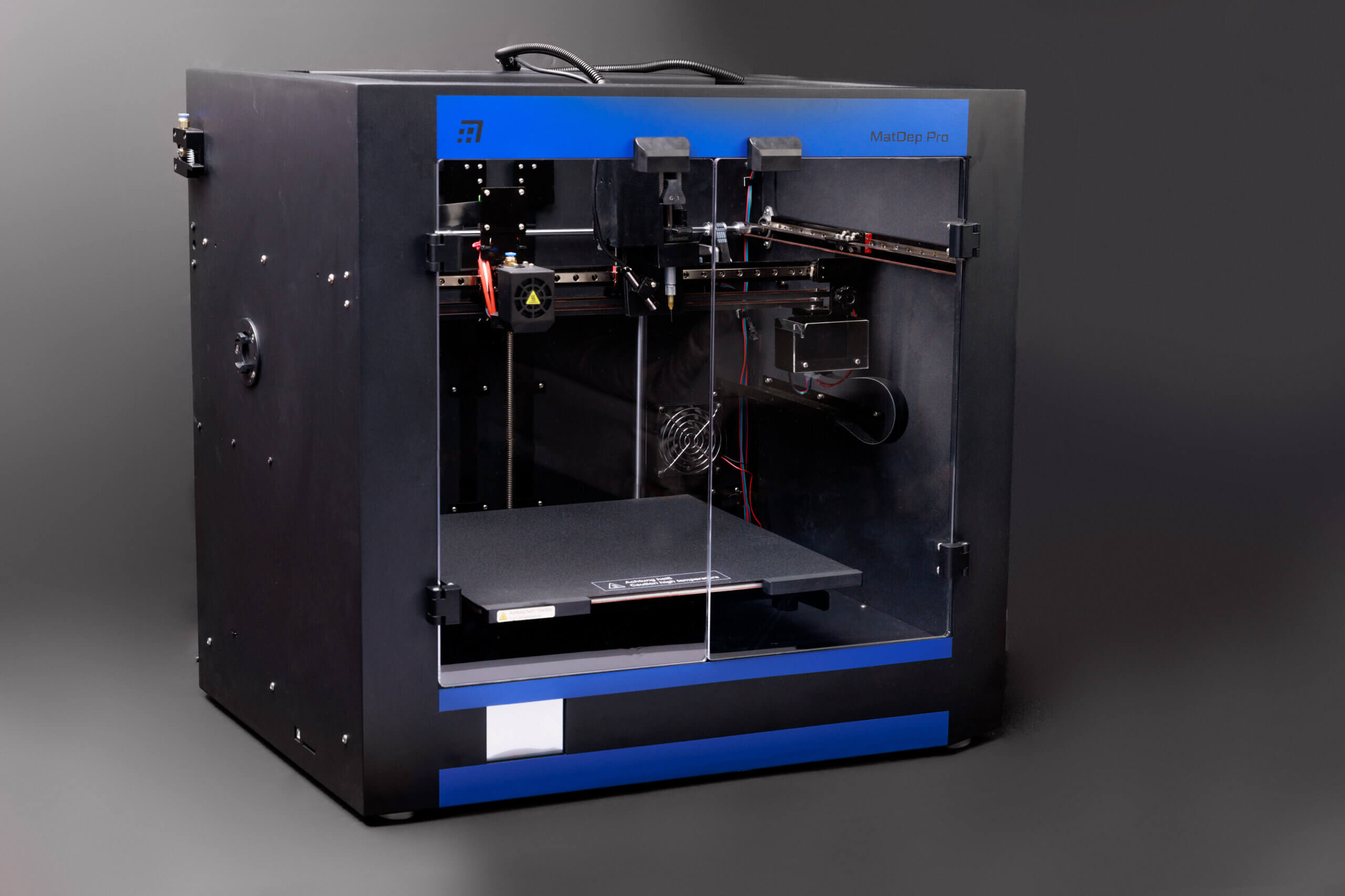Lab’s goal is to build integrated microcontroller systems for sensor-embedded devices
Burlingame, CA – (February 1, 2023) – nano3Dprint, a next-generation additive manufacturing solutions provider, today announced that it has entered into a collaboration with the Billi Research Lab, whose objective is to improve patient quality of life by developing breakthrough technologies and solutions to address unmet clinical needs. The Billi Research Lab is supported by the Luskin Orthopaedic Institute for Children (LuskinOIC).
The collaboration will enable Dr. Billi and his team to utilize nano3print’s 3D printing technologies to build integrated microcontroller systems for sensor-embedded devices that will benefit children served by LuskinOIC. Some of the devices currently under development include scoliosis braces, smart casts and Ponseti braces, which are used to treat clubfoot.
“We’re looking forward to utilizing nano3Dprint’s B3300 Dual-Dispensing 3D Printer to further our research and development of wearables, fusion sensors and smart textiles. Current additive technologies are not versatile enough to allow us to build the complex, multifunctional devices required to provide modern and truly disruptive healthcare,” said Dr. Fabrizio Billi, Director of the Musculoskeletal Devices and Technologies Development Group.
The Billi Research Lab’s smart cast project will, among other things, deliver real-time details about the fracture healing process, providing early warning of compartment syndrome, a dangerous condition in which swelling inside the cast limits blood flow to the limb, thereby causing tissue necrosis.
nano3Dprint’s B3300 will be used to 3D print the smart cast’s electronic package, including sensors that are printed directly on supports easily embeddable in the cast structure. The 3D printed circuits and sensors will allow complete integration and intelligent distribution of battery and wiring, eliminating the need for external wiring and obtrusive components. Moreover, the embedded circuit will allow for the connection of a multitude of sensors where necessary.
Dr. Billi added that a similar system could be made for the Ponseti brace with an electronics bar attached to – or replacing – the bar that connects the shoes. Similar electronics could be integrated into the “ribs” of an advanced scoliosis brace.
Dr. Billi and his team also hope to 3D print sensors directly on living tissues like bone, cartilage, tendons, and skin in a process already in progress and which has shown promise. “Monitoring mechanical and physiological parameters directly on the tissue would allow our team to significantly advance our understanding of health status and tissue response to treatment,” said Dr. Billi. “More importantly, they will be able to obtain the necessary biofeedback to move from developing therapeutic devices to developing theranostic devices.”
Ramsey Stevens, nano3Dprint CEO, said that the collaboration supports the company’s goals of advancing medicine through new technologies. “We’re excited to collaborate with Dr. Billi as he pioneers new medical devices to enhance patient care. One of our primary objectives is to improve research and development via multi-material 3D printing that ultimately leads to improvements across many sectors,” Stevens said.
For additional information, visit nano3Dprint at https://nano3dprint.com.
About nano3Dprint: nano3Dprint offers next-generation additive manufacturing solutions that enable printing of fully-realized electronic devices with seamless integration of micro-to-nanoscale materials. With its electronics printer lineup, nano3Dprint is upleveling legacy 3D printing systems to allow users to invent, design, test, research and manufacture rapidly, easily and accurately.
About Luskin Orthopaedic Institute for Children: Founded in 1911 as Los Angeles Orthopaedic Hospital, Luskin Orthopaedic Institute for Children (LuskinOIC) is solely focused on pediatric musculoskeletal orthopedics. Its mission is to provide outstanding care for patients with musculoskeletal disorders and through the support of the Luskin Orthopaedic Institute for Children Foundation, to provide care for children regardless of ability to pay and advance care worldwide for all musculoskeletal patients through medical education and scientific research.
About Billi Research Lab: The Billi Research Lab is led by Dr. Fabrizio Billi, Director, Co-Director, Orthopaedic Research at Harbor-UCLA Medical Center. Its mission is to improve the quality of life of patients by developing breakthrough technologies and solutions to address unmet clinical needs.
Press contact:
Lauren Schiffman
PressFriendly
lauren@pressfriendly.com




